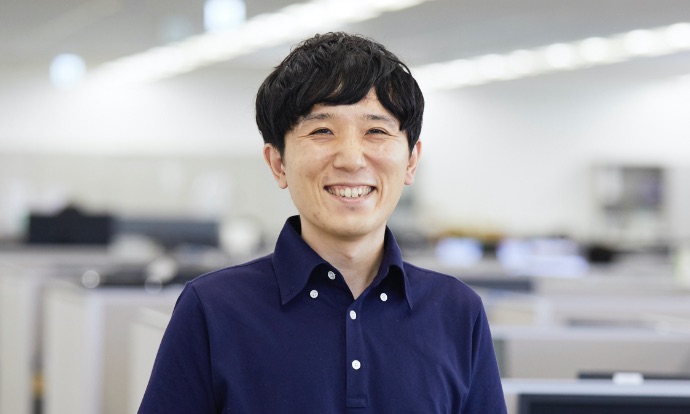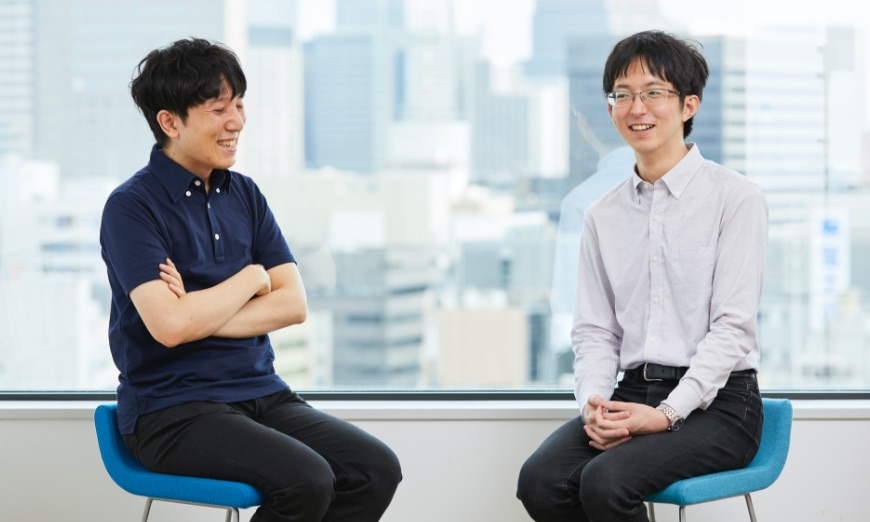Company
IR

Research Engineer
Joined in 2014
I was doing research (experimental physics) on subatomic particles at university. I set up a neutrino detector of my own making near a nuclear power plant and detected the subatomic particles coming out of the plant (although I ended up doing my doctoral thesis on a different topic because of the 3.11 earthquake that shut down the plant during my research). But I was always interested in computers. I got into electronics when I was in elementary school, and in junior high school I bought a lot of motherboards and CPUs at electronics stores and made my own PC (I wanted to play flight simulator PC games). Outside of academia, I occasionally competed in Google Code Jams. I was mainly using C++ and Python at the time, but the languages I used are still pretty much the same. When I joined the company, I had no experience in machine learning.

I had the option of continuing my research as a researcher after graduating from graduate school, but in light of the impact of the 311 disaster and the status of my research topic, I decided to work for a private sector. However, at that time, there were many cases in which doctoral students were treated as work-ready and the door was narrow. In such a situation, I applied for Morpho because the company accepted me as a new graduate, as they allowed me to study specialized knowledge directly related to my work after I joined the company.Because I changed my research theme after the earthquake, my graduate school graduation was delayed for a year, but I was grateful that they waited for me to join the company for that year.
I joined the company in the spring of 2014 as a new graduate, and I have been consistently in charge of AI-related research and development since my first experience with Deep Learning in the winter of that year. Most recently, I have been developing a Deep Learning learning platform for both internal and customer use. The purpose of this development is to increase the usability of several open-source frameworks, such as Tensorflow and Pytorch, by making them optimized and generalized for Morpho's products. I have been working on other projects, and I have been consistently involved in joint R&D projects on automated driving since the kick-off.
In terms of programming, I was exposed to C++ and Python, as I mentioned above, so I'm glad I did it. Also, I think the sequence of hypothesis testing (deciding on what I want to do, doing research, and summarizing it in a paper) is also useful in my work. Also, I think the sequence of hypothesis testing (deciding on what I want to do, doing research, and summarizing it in a paper) is useful in my work. Also, I use mathematics on a daily basis, and I personally think that the mathematics used in machine learning is often less difficult than that used in physics, so I have less resistance to it.
At Morpho, we focus on how we can solve the problems of our customers. Also, it's not an exploration of principles or a need for decades to come, but a focus on a need 1 to 2 years in the future, and the emphasis is on practicality rather than novelty. In order to continue to perform well in such an environment, you need to keep learning. Especially when we're busy, it's easy to use the accumulated experience of the past to figure things out, but this is not the way to make progress. Unlearning, or rather, continuing to take in outside knowledge, is the key to success. I think this is important. Conversely, when you join a company, there's no such thing as a "must have" skill set. I think this is a great environment for people who are curious about many things.